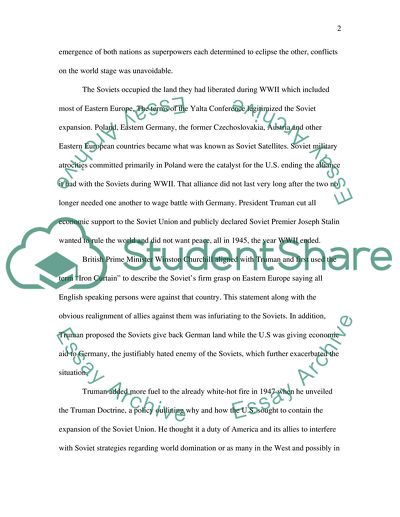Cite this document
(“Critique the Truman Doctrine/Marshall Plan from your 2010 perspective Essay”, n.d.)
Retrieved from https://studentshare.org/miscellaneous/1574207-critique-the-truman-doctrinemarshall-plan-from-your-2010-perspective-evaluate-the-impact-of-the-cold-war-period-on-american-history
Retrieved from https://studentshare.org/miscellaneous/1574207-critique-the-truman-doctrinemarshall-plan-from-your-2010-perspective-evaluate-the-impact-of-the-cold-war-period-on-american-history
(Critique the Truman Doctrine/Marshall Plan from Your 2010 Perspective Essay)
https://studentshare.org/miscellaneous/1574207-critique-the-truman-doctrinemarshall-plan-from-your-2010-perspective-evaluate-the-impact-of-the-cold-war-period-on-american-history.
https://studentshare.org/miscellaneous/1574207-critique-the-truman-doctrinemarshall-plan-from-your-2010-perspective-evaluate-the-impact-of-the-cold-war-period-on-american-history.
“Critique the Truman Doctrine/Marshall Plan from Your 2010 Perspective Essay”, n.d. https://studentshare.org/miscellaneous/1574207-critique-the-truman-doctrinemarshall-plan-from-your-2010-perspective-evaluate-the-impact-of-the-cold-war-period-on-american-history.


